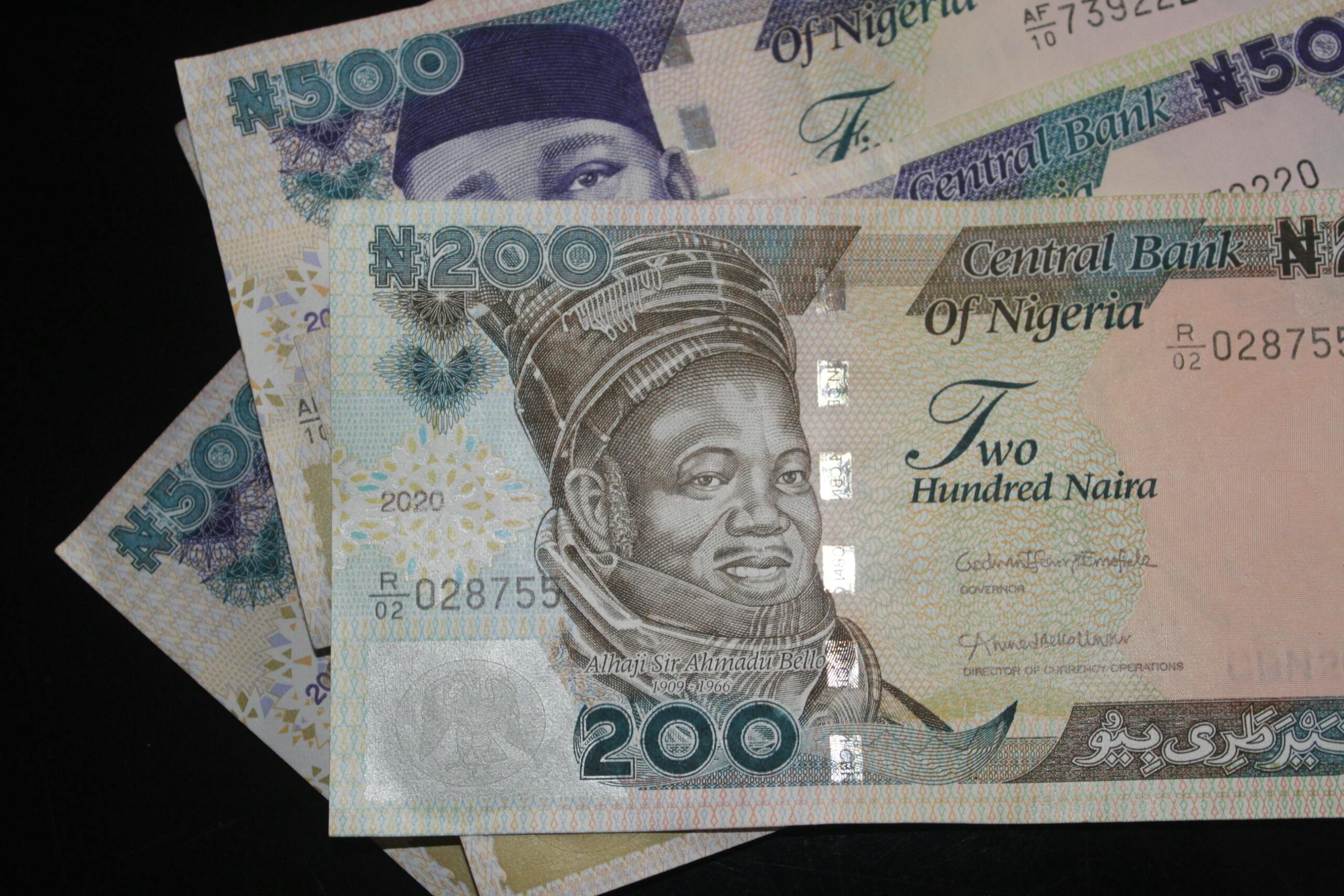
More than a year after the Supreme Court ruled that the new and old naira notes can co-exist, transiting to the new notes has remained an endless wait, a development, which many fear could spur counterfeiting, AMEH OCHOJILA reports.
The Central Bank of Nigeria (CBN) is yet to clearly decipher the dilemma of either allowing the old and new naira notes to co-exist perpetually or staying put with one, following the Supreme Court’s verdict permitting the coexistence of both notes as legal tender “until further notice.”
The apex court’s ruling in March 2023 affirmed that the old N200, N500, and N1,000 denominations would continue to be legal tenders alongside the new notes until a replacement, or redesign process is established by the Federal Government, after due consultations with stakeholders.
The ruling by the apex court, no doubt, was a timely intervention by the judiciary to reduce the suffering of Nigerians during the ill-fated naira swap project initiated by the President Muhammadu Buhari-led administration.
The judgment restrained the Central Bank of Nigeria (CBN) from enforcing an earlier deadline on the use of old notes and ordered the CBN to extend the validity of the old denominations indefinitely.
Consequently, the CBN’s Director of Corporate Communications, Sidi Hakama, in a statement instructed all branches of deposit money banks to continue issuing and accepting all denominations, old and redesigned. The directive emphasized the Supreme Court’s decision on the matter and Section 20(5) of the CBN Act 2007.
Specifically, sections 2b and 17 of the CBN Act give the CBN the sole right and authority to issue currency notes and coins throughout Nigeria.
Arising from the back-and-forth experienced in the polity, experts said that demonetisation of the currency is ongoing in the country, and often involves replacing old, worn-out currency with new notes, or coins in manners that citizens are not affected.
They argue that countries may opt for demonetisation of currency for various reasons, such as combating counterfeiting, reducing corruption, or promoting a shift towards digital transactions.
The purpose of demonetisation of the naira was to reduce the amount of cash outside the vaults of commercial banks and also to curb counterfeiting.
On the other hand, the policy was designed to enable the adoption of the CBN’s cashless policy and also reduce crime rates in the country. “This is a positive departure from the past and represents a bold legacy step by this administration towards laying a strong foundation for free and fair elections,” Buhari had stated.
However, during this period, Nigerians were unable to access cash for weeks after the apex bank started replacing currency notes of higher denominations – N1,000, N500, and N200 with the newly redesigned ones.
There were several reports of deaths attributed to the crisis, including cases of patients who died after their loved ones failed to get cash in time to pay for their medical emergencies.
The situation was believed to be worse in remote areas, where few people have access to bank accounts and mobile phone networks are poor.
At the high point of the crisis, the apex court in its wisdom delivered a judgment in a suit brought by the Federal Government against the CBN, in which the court held that the old and new notes should remain as legal tenders until the Federal Government puts a process in place for their replacement.
The Supreme Court also faulted the poor consultation with relevant stakeholders before the implementation of the policy.
According to analysts, a currency swap is not uncommon, but such decisions take time, as they involve careful consideration of various factors like economic stability, trade relations, and monetary policy goals.
An economist, Candidus Enokela, said the poor handling of the new naira issue negated whatever importance that was earlier attached to the initiative.
He explained that two currencies can exist side-by-side during a swap until the old one gradually phases out, adding, however, that such an arrangement must be carefully monitored.
The economist said that the CBN must carefully monitor currency against counterfeiting and circulation of fake notes during the process, adding that such measures and publicity had not been noted in recent times.
For a development economist, Felix Okoh, it behooves the CBN to give credibility and acceptance to whatever currency that it releases, even as it ensures that the currency is protected, valued, and maintained.
Bayo Akindele, a legal practitioner claimed that the current administration is only trying to clean up the mess that the last administration caused by prematurely redesigning the naira notes to cause a political upset in the run-up to the last general elections.
He said that as long as the court has declared both old and new notes legal tenders, there isn’t any problem. The naira, he said, is not about its design, but what value is placed on it, or the value that it carries.
“People only care about having enough money, whether it’s in physical cash, or deposited in the bank. They only want access to their money on time and to be able to spend it without stress,” the lawyer said.
Another lawyer, Monday Ikpe, also agreed that as long as the court has declared both as legal tenders, the matter stands settled, and the medium is legit for use.
He, however, said that the CBN should quickly gather relevant stakeholders and give better directions for the botched policy.
A banking and financial expert, Fidelis Ijegbudu, who believes that having multiple currencies does not harm the economy, emphasised that the government’s focus is on stabilising monetary policy, which he thinks is better.
Ijegbudu also alleged that the CBN likely has a plan to address old naira notes, which it is yet to make public.
Victor Idajili, a financial expert with the Socio-Economic Research and Development Centre (SERDEC) said that the coexistence of currencies for transition purposes is not uncommon.
Idajili, however, said that it is important for such to be closely monitored to ensure that fake currencies do not creep into circulation during the period.
He, therefore, called on relevant agencies to speedily step in and halt the transitioning period, stressing that a year is long enough for the CBN to have wrapped up the process.
An expert in business law, Sesoo Ami, said that both notes remain a legal tender, and do not pose challenges at the moment.
The lawyer said that since there were no issues or challenges during the transaction, it was okay from the angle of law.
A senior accountant with the Federal Ministry of Finance, who would not want his name in print for fear of being sanctioned, said that the prevailing condition is a serious policy decision that requires the attention of the president for direction.
He explained that given what transpired during the note swap (just before the 2023 election), relevant officials from the CBN should approach the president on the matter.
In his inaugural address, President Bola Ahmed Tinubu expressed strong reservations about the CBN’s currency swap policy.
He acknowledged that while the policy may have had its merits in concept, its implementation was too harsh, particularly given the significant portion of Nigeria’s population that remains unbanked.
He noted that many Nigerians, especially in rural areas, were disproportionately affected by the sudden shift, as they lacked access to formal banking systems necessary to adjust to the new currency policy.
Tinubu announced that his administration would immediately review the currency swap policy. Pending a comprehensive review, he declared that his government would continue to treat both the old and new currencies as legal tenders, ensuring that Nigerians could use either without penalty or restriction.
“Whatever merits it had in concept, the currency swap was too harshly applied by the CBN given the number of unbanked Nigerians. The policy shall be reviewed. In the meantime, my administration will treat both currencies as legal tender.”
But after more than a year in office, the policy has not been reviewed yet.
The president at that time also highlighted the need for a broader overhaul of the nation’s monetary policy and called for “thorough house cleansing” within the CBN while emphasising the importance of establishing a unified exchange rate system.
Tinubu’s critique implied that the multiple exchange rates managed by the CBN had created inefficiencies and distortions in the market, affecting economic stability.
He made it clear that his administration would prioritise a more transparent and equitable exchange rate regime, to strengthen investors’ confidence and enhance economic predictability.
From his inaugural speech, Tinubu signaled his commitment to fostering a stable monetary environment that is crucial for Nigeria’s economic growth and recovery, and a marching order to CBN for fresh monetary policy.
Notwithstanding, the apex bank is yet to unveil a definitive financial management framework to address these challenges, including the issue of dual currency notes.
Recently, the House of Representatives called on the CBN to issue more of the redesigned N200, N500, and N1,000 notes while gradually withdrawing the old notes from circulation before the December 31 deadline.
This directive reportedly sparked renewed panic among members of the public, leading to the hoarding of the old notes.
In response, the CBN issued a press statement in November, through Hakama, dismissing reports that the old notes would cease to be legal tender by year-end.






